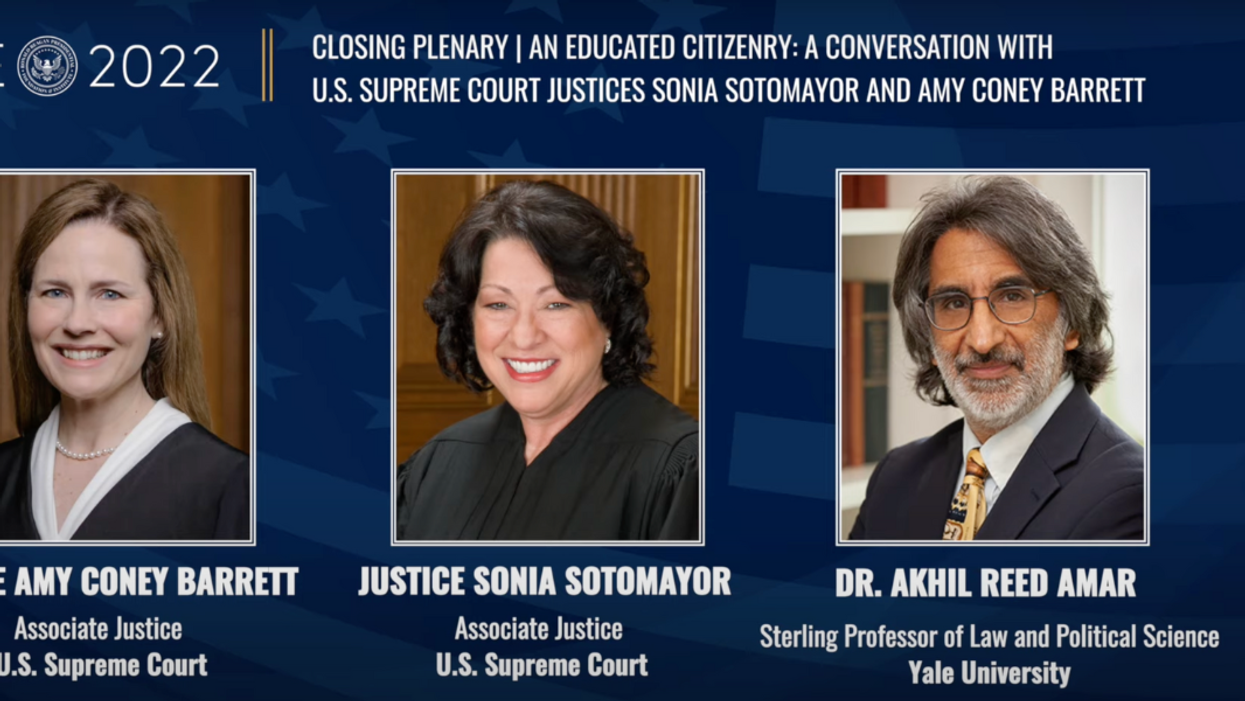Two Supreme Court justices who often disagree in their decisions at work came together to discuss their shared passions for civic education and civic duty.
Supreme Court Justices Sonia Sotomayor and Amy Coney Barrett spoke with Yale law professor Akhil Reed Amar during a seminar hosted by The Ronald Reagan Institute. They talked about everything from family and ethics to bridging polarization in America and within the Supreme Court. The conversation gave insights into what these two justices think about education and the future of the nation.
During the hour, the pair highlighted a number of commonalities — specifically their shared passions for civic education for American youth and civic duty for citizens. Both Sotomayor and Coney Barrett attributed their professional successes to their academic paths.
They emphasized the importance of civic education, its ability to teach youth how to become a “good citizen” and its key role in upholding America’s democracy.
“Most people think about civics like learning about the government, how it functions and what each branch of the government does,” said Sotomayor. “When I think about civics, it's not just ‘how does the government work’ but ‘how does our society work?’”
When asked how she models good citizenship for young people, Sotomayor cited not just her time spent at seminars and responding to letters, but her ability to stay grounded and motivated to try and help others.
“I truly believe that the greatest model of citizenship is not the work you do for pay, but it's the work that you elect to do for free,” she remarked. She believes people can be themselves “as long as [they’re] finding ways to better the world.”
Coney Barrett reflected on encouraging her own children to participate in community service and voting.
“Educating our young people to be good citizens is crucial,” she said. “And part of being a good citizen is learning to care for the needs of others.”
She credited civic education in giving youth the ability to learn about the government and providing a sense of civic duty — a key component of getting individuals to vote and support democracy.
The justices also reflected on the Court’s unique ability to see past individuals’ political viewpoints and show appreciation for the person they know their colleague to be. Both justices divulged the regard and admiration they hold for one another, revealing that all the justices are close friends.
Sotomayor acknowledged the ideological differences between her and Coney Barrett; however, she revealed that “disagreements on political issues and important constitutional issues doesn’t diminish the value of who Justice Amy Coney Barrett is,” and Sotomayor hardly ever shys away from having difficult conversations with the other justices.
Coney Barrett imparted strong advice on combating polarization: “I think finding ways to see people for who they are and not just for the opinions they hold helps bridge gaps and bridge differences.”



















